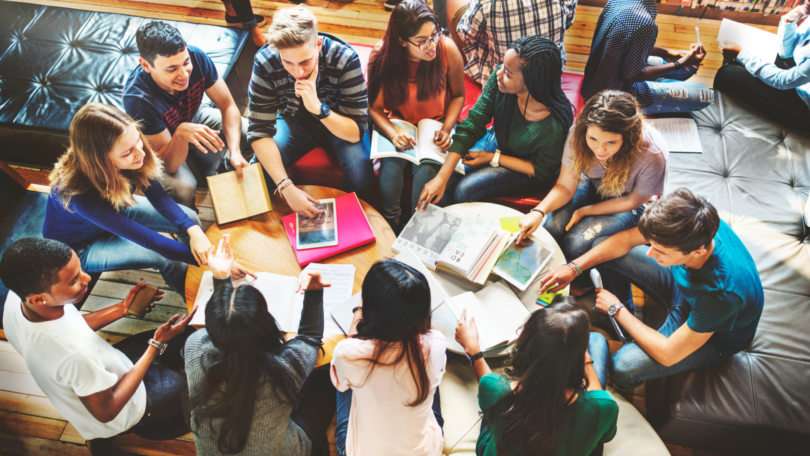BridgeUSA shares how Gen Z neighbors can build community through constructive political conversations
In the age of technology, it’s hard to imagine a time when we weren’t more connected than we are today. Access to social media and video calls have opened doors to keeping up with friends and family, especially during the COVID-19 pandemic when our ability to socialize was tremendously impacted.
But despite this technology, we are feeling the effects of not being able to interact with each other in person, and while we return to a new normal, we’re faced with another phenomenon that has been seeding itself throughout society long before 2020: rates of loneliness in America. In response to this, Nextdoor teamed up with leading experts on loneliness to conduct a study examining how meaningful connections impact feelings of loneliness, quality of life, and well-being.
Since the 1980s, feelings of loneliness in the United States have doubled. As of 2021, more than half (58%) of Americans are considered lonely, including 61% of young adults who reported feeling “seriously lonely”.
While the pandemic had a large impact on this, factors including increased time online have been aiding these social disconnects for a while. Data shows that a decrease in face to face interactions has been happening among teenagers since the 1970s, but grew significantly after 2010 when smartphone usage grew.
According to the American Enterprise Institute, Americans also have fewer close friendships than they once did and rely less on their friends for personal support. This decline in forming close friendships and connections could also lead to an increased unwillingness among people to engage with those outside of their immediate circles. Nextdoor’s study found that knowing just six neighbors reduces the likelihood of feeling lonely and is linked to lower depression, social anxiety, and financial concerns related to COVID-19.
My organization, BridgeUSA, relies on these social interactions and on our willingness to engage with each other to have conversations across lines of difference. Solely run by Gen-Z, we create spaces for college and high school students to discuss political issues constructively with those they may disagree with – something that is now rare and seemingly impossible.
Currently, we have 50 college and 24 high school chapters across the country. Over a thousand students participated in these discussions between January and May of this year. It’s no question that political discussions, especially ones with people you disagree with, can be contentious. However, they are necessary to address growing political tensions in the U.S. and lack of long-term solutions in Congress.
In June, 28% of Americans said that political division was one of the most important issues facing the country – falling behind only “inflation or increasing costs” (56%) and “crime or gun violence” (42%). Yet, the idea of talking with those on the opposite side of the political spectrum may seem absurd or uncomfortable.
The fact is that we are not going to start conversations with people we disagree with or be willing to work together if we aren’t even connecting with people who are already closest to us. This means forming relationships with those in our local communities, at work or in classrooms.
For us to scratch the surface of having constructive political conversations and finding better solutions to common problems, we must first address the disconnect and loneliness we are seeing within our society. We need to create the opportunity to meet people outside of our immediate social circles. Nextdoor automatically connects you with the people nearby so you can build relationships with those in your local neighborhood. As a proximity-based platform, it offers a unique opportunity to bring those online connections offline and into the real world.
As students head back to school this fall, it’s more important than ever to re-engage them in conversations and social activities. BridgeUSA is a great place to introduce students to respectful conversations on all kinds of topics and meet people on campus. See if your college or high school has a local BridgeUSA chapter to join, or start one by becoming a chapter leader.
Americans, as a whole, are feeling more lonely than ever. We each have a role in mending our social disconnect and deciding how we engage with each other. BridgeUSA works to improve political discourse, but first we must address the community we’ve lost with those around us.
It starts with reimagining our social relationships. We must be willing to invest time into our relationships and replace some screen time with [literal] face time. We must also be willing to meet new people. Each interaction can pave the way for strengthening our communities and lowering the rates of loneliness among Americans.
Jessica Carpenter is the Chief Marketing Officer at BridgeUSA, a youth-led nonprofit organization focused on creating political discussions across the aisle. She is passionate about improving our country through changing how we discuss political issues.
To connect with your local neighborhood, download the app or login at nextdoor.com.


